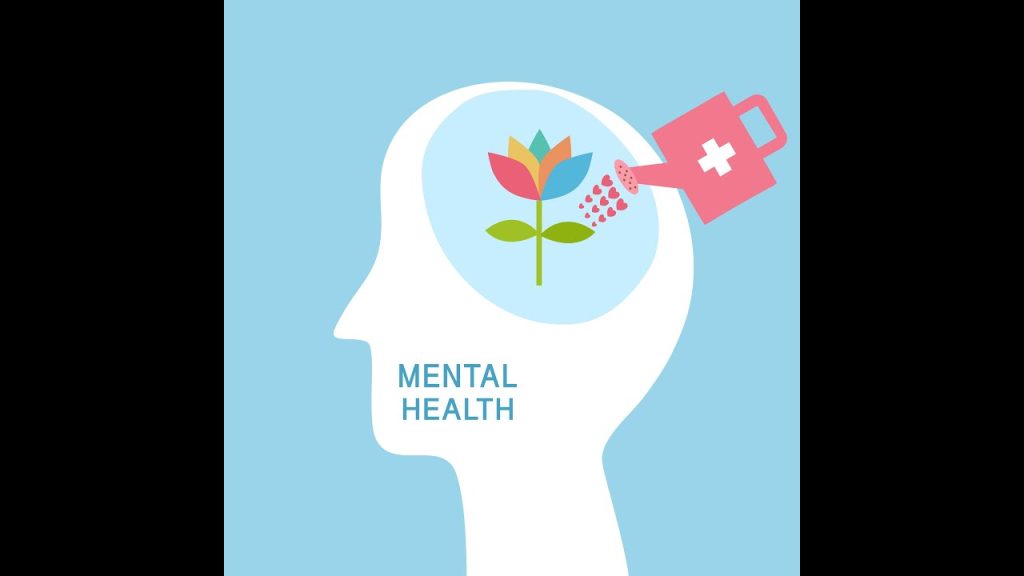In today’s world, healthcare is evolving to keep up with modern technological advancements. As we continue to embrace digital tools and remote healthcare solutions, one area that has gained increasing importance is mental health assessments. Traditionally, mental health diagnoses and treatments took place in person, through one-on-one consultations with therapists or counselors. However, with the rise of telehealth, mental health care has become more accessible than ever before.
Remote healthcare services, such as virtual consultations, remote therapy, and mental health assessments, allow individuals to seek mental health support from the comfort of their own homes. In this digital age, mental health assessments play a key role in ensuring patients receive the care and support they need, without having to visit a healthcare facility. Let’s explore the significance of mental health assessments in remote healthcare and why they are essential for individuals and healthcare providers alike.
Why Mental Health Assessments Are Important in Remote Healthcare
Mental health assessments are the foundation of diagnosing and treating emotional and psychological conditions. Whether it’s dealing with anxiety, depression, or stress-related disorders, an assessment provides critical insights into an individual’s mental state. These assessments allow healthcare professionals to identify conditions early, tailor interventions, and develop personalized treatment plans.
Remote mental health assessments allow individuals, especially those in underserved areas, to gain access to the care they need. It can be challenging for some to travel long distances to a healthcare facility or to take time off work to attend an appointment. By offering assessments remotely, healthcare providers can help individuals overcome these barriers and access crucial support without leaving their homes.
How Remote Mental Health Assessments Work
In a remote setting, mental health assessments are conducted through online platforms using video consultations, questionnaires, or digital tools. Patients may answer a series of questions designed to assess their emotional well-being, mental health status, and any symptoms they may be experiencing. These assessments could include:
- Structured Questionnaires: Standardized tools such as the Patient Health Questionnaire (PHQ-9) or Generalized Anxiety Disorder scale (GAD-7) are often used to screen for conditions like depression and anxiety. Patients answer questions based on their experiences over the past week or month, providing insight into their mental health.
- Video Consultations: In some cases, a healthcare provider may conduct a live video consultation to engage with the patient directly. During this session, the provider may assess verbal and non-verbal cues, discuss the patient’s symptoms, and provide guidance or recommendations.
- Digital Mental Health Apps: Many remote mental health services use apps that offer self-assessments, mood tracking, and therapeutic tools. These apps are designed to gather data and provide insights into the patient’s mental health.
The results from these assessments are then analyzed by trained professionals who can determine if further treatment or intervention is needed.
Key Benefits of Remote Mental Health Assessments
- Increased Accessibility
One of the main benefits of remote mental health assessments is accessibility. Many individuals struggle to find mental health care, whether due to living in rural areas, financial constraints, or the stigma associated with mental health issues. Remote assessments make it easier for people to get help, regardless of where they live or their financial situation.
Remote healthcare allows patients to access services without the need for travel, long wait times, or feeling uncomfortable in an in-person setting. This can be especially important for those who feel anxiety around seeing a therapist in person. - Privacy and Comfort
Many people find it easier to discuss personal matters when they’re in a comfortable, familiar environment. Remote mental health assessments allow individuals to participate in the assessment from their own home, which often feels less intimidating than a clinical setting. This sense of privacy and comfort may encourage patients to open up more honestly about their feelings and experiences, leading to more accurate assessments and a stronger therapeutic relationship. - Timely Intervention and Support
Early identification of mental health issues is crucial. Remote mental health assessments enable quicker detection of symptoms and early signs of mental health disorders. By detecting these signs early, healthcare providers can intervene sooner, provide resources, and offer treatment options that can help prevent the condition from worsening.
Timely intervention can be life-changing. It can prevent the escalation of issues like severe depression, anxiety, or suicidal thoughts, ensuring that the patient receives appropriate care before the situation becomes more urgent. - Convenience and Flexibility
With remote assessments, patients have the flexibility to schedule appointments that work around their personal lives, reducing the stress of fitting in a physical visit. People who may have difficulty taking time off work or arranging childcare can more easily fit mental health assessments into their routine. This flexibility encourages more individuals to seek the care they need and adhere to their treatment plans. - Reduced Stigma
Mental health issues are often accompanied by stigma, and many individuals may feel reluctant to seek help due to fears of being judged. Remote mental health assessments offer a more discreet way for patients to seek help, reducing the social stigma associated with mental health care. This can lead to more people reaching out for support who may have otherwise avoided care.
Challenges in Remote Mental Health Assessments
Despite the advantages, there are challenges to consider in remote mental health assessments:
- Lack of Personal Interaction
Face-to-face consultations provide important non-verbal cues that help healthcare providers assess a patient’s mental state. Remote assessments lack these cues, which may make it harder to gauge certain emotions or behavioral patterns. While video consultations offer some visual interaction, they may not always be as comprehensive as in-person meetings. - Technological Barriers
Not all patients have access to the necessary technology, such as smartphones, high-speed internet, or computers, to participate in remote assessments. This technological divide can prevent some individuals from receiving the care they need. - Patient Privacy Concerns
With remote consultations, there’s always the concern of data privacy. Sensitive mental health information needs to be protected, and remote platforms must ensure they comply with legal and ethical standards for safeguarding patient data. - Patient Engagement
Engaging patients through remote assessments can be difficult, especially for individuals who may not be comfortable with technology or are hesitant to open up in virtual environments. Some patients may also feel less accountable in a remote setting, which could impact their level of engagement in their mental health care.
Conclusion
Mental health assessments are an essential component of remote healthcare services. By providing accessibility, privacy, timely interventions, and convenience, remote mental health assessments help ensure individuals receive the support they need without barriers. While challenges exist, such as technological limitations and the absence of in-person interaction, the benefits of remote mental health assessments are significant in promoting mental well-being and helping individuals manage mental health conditions.
As telehealth and remote healthcare continue to grow, mental health assessments will play an increasingly important role in providing comprehensive, accessible, and effective care. For both patients and healthcare providers, embracing remote assessments will be a key step in ensuring that mental health remains a priority in the evolving healthcare system.
Prioritize your mental well-being today. Schedule a remote mental health assessment now








